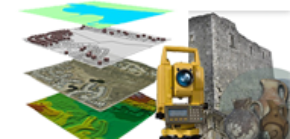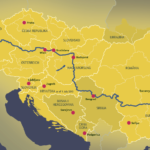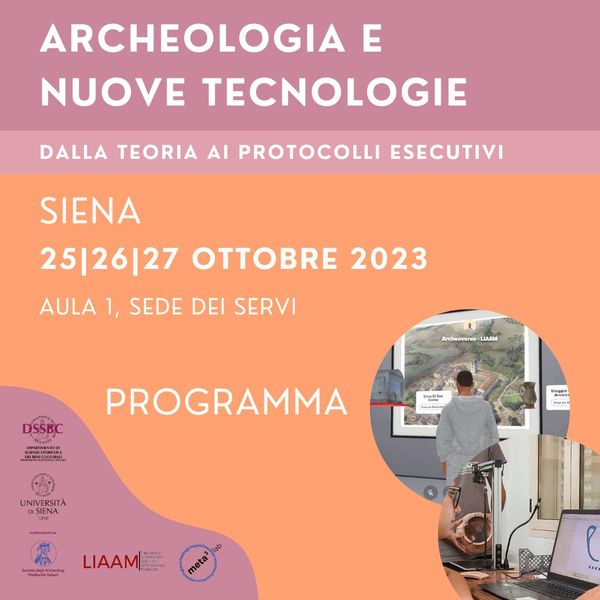INDIVIDUALS, COMMUNITIES AND NARRATIVES
THE STATE OF BIOSOCIAL ARCHAEOLOGY IN THE MIDDLE DANUBE REGION
ELTE – EÖTVÖS LORÁND UNIVERSITY, INSTITUTE OF ARCHAEOLOGICAL SCIENCES 1088 BUDAPEST, MÚZEUM KRT. 4.
18-19 MARCH 2020
18 March 2020 Individuals and local communities
9:50–10:00 – CONFERENCE OPENING – László Borhy, rector of the Eötvös Loránd University
10:00–10:30 – László Borhy: Frauen in Brigetio im Spiegel der Inschriften
10:30–11:00 – Katalin Sebők, Kurt W. Alt, Péter Csippán, Norbert Faragó, Tamás Hajdu, Kitti Köhler, Attila Kreiter, Alexander Mörseburg, Zsuzsanna Siklósi, Anna Szécsényi-Nagy, Zsuzsanna Tóth, Zsuzsanna Zoffmann(†): Biosocial analysis of a Late Neolithic community in the Middle Tisza Region
11:00–11:30 – Alexandra Anders, Péter Csippán, Tamás Hajdu, Emese Gyöngyér Nagy, Ildikó Pap, Pál Raczky, Zsuzsanna Tóth: Neolithic life histories. Bioarchaeological investigations on burials of the Polgár micro region
11:30–12:00 – COFFEE BREAK
12:00–12:30 – Zsuzsanna Siklósi, Richard Madgwick, Katie Faillace, Morten Andersen, Marc-Alban Millet, Tamás Hajdu, Krisztián Kiss, Márton Szilágyi, Norbert Faragó: Community and individual mobility in the Early Copper Age on the Great Hungarian Plain
12:30–13:00 – Volker Heyd, János Dani, Gabriella Kulcsár, Tamás Hajdu, Bianca Preda, Jens Blöcher, Joachim Burger, Piotr Wlodarcza: Being a Young Yamnaya Woman. Ancient DNA, stable isotopes, bio-anthropology and archaeology shed light on the life of a 4600 years old burial from Bojt (Hungary)
13:00–14:30 – LUNCH BREAK
14:30–15:00 – Anna Szécsényi-Nayi-Nagy, Julia Giblin, Tamás Hajdu, Dániel Gerber, Gusztáv Tóth, Vajk Szeverényi, Viktória Kiss: Bioarchaeological analysis of the Middle Bronze Age pit burials from Érd-Hosszú-dűlő in Hungary
15:00–15:30 – Corina Knipper, István Koncz, Gábor János Ódor, Balázs Gusztáv Mende, Zsófia Rácz, Tivadar Vida: Community formation in Pannonia after the decline of the Roman Empire: An interdisciplinary study of the cemetery of Mözs
15:30–16:00 – Csilla Balogh, Sándor Gulyás: Subsistence patterns of an Early Avar community in the Maros valley based on interdisciplinary investigation
16:00–16:30 – COFFEE BREAK
16:30-17:00 – Mario Novak, Andrea Rimpf: Co-existing in life, co-existing in death: the use of Šarengrad – Klopare site (Eastern Croatia) as a burial ground during the Late Avar Period
17:00-17:30 Tamás Szeniczey, Zsuzsanna Hajnal, Tivadar Vida, Zsófia Rácz, Antónia Marcsik, Tamás Hajdu: Different roots, merging future – Population structure of the Avar Period site of Kölked-Feketekapu
18:30 DINNER
19 March 2020 Regional studies
9:30–10:00 – Eszter Bánffy: The birth and flourishment of the Central European Neolithic, in the light of the Sárköz research (2006-2020)
10:00–10:30 – Margaux L. C. Depaermentier, Kurt W. Alt, Eszter Bánffy: Local communities versus large scale movement of population in the Carpathian Basin: new perspectives on Neolithic mobility using stable isotope analyses
10:30–11:00 – Michael Kempf, Margaux L. C. Depaermentier: A multivariate environmental analysis to determine local stable 87 Sr /86 Sr isotope baselines in Neolithic Hungary
11:00–11:30 – COFFEE BREAK
11:30–12:00 – Claudio Cavazzuti, Tamás Hajdu, Viktória Kiss, Magdolna Vicze: Different rituals, different origin? Mobility in the Early/Middle Bronze Age communities along the Danube in Central Hungary through isotope data
12:00–12:30 – Walter Pohl, Tivadar Vida, Patrick Geary, Johannes Krause: HistoGenes – Integrating genetic, archaeological and historical perspectives on Eastern Central Europe, 400- 900. Introduction to the project
12:30–14:00 – LUNCH BREAK
14:00–14:30 –
Caterina Giostra: After the Middle Danube Region: the social structure of the Longobard communities in Northern Italy in the light of bioarchaeology
14:30–15:00 – Zsófia Rácz, Corina Knipper: Subsistence strategies in the Hun and Gepidic Period in the Carpathian Basin – Introduction and first results of a new interdisciplinary project
15:00–15:30 – Ákos Pető, Zsófia Masek, Árpád Kenéz, Dénes Saláta: Similarities and differences in the plant based subsistence strategies between the 4th and 6th centuries in the Tisza region
15:30–16:00 – COFFEE BREAK
16:00–16:30 – Endre Neparáczki, Zoltán Marót, Tibor Kalmár, Kitti Maár, Gergely I. Varga, Bence Kovács, István Nagy, Dóra Latinovics, Zsolt Bernert, György Pálfi, Balázs Tihanyi, Antónia Marcsik, László Kovács, István Raskó, Tibor Török: Preliminary genetic results from the 10-11th century commoner cemeteries of the Carpathian Basin
16:30–17:00 – Iulia Rusu and Richard Madgwick: Exploring Magyar diet and health: An integration of isotope analysis and osteoarchaeology
17:00–17:30 – Orsolya László: ’Long-gone children’. Comparative bioanthropological analysis of non- adult human remains in historical populations






